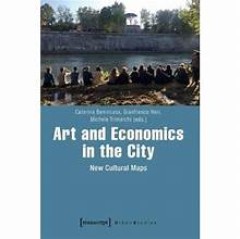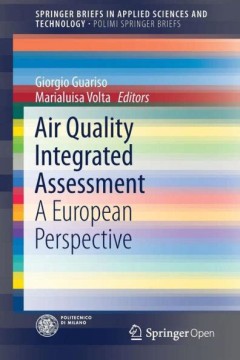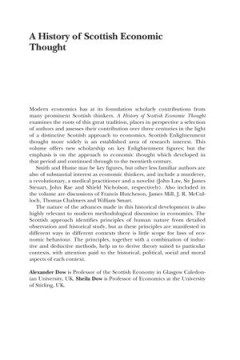Filter by

Bioeconomy and Global Inequalities : Socio-Ecological Perspectives on Biomass…
This open access book focuses on the meanings, agendas, as well as the local and global implications of bioeconomy and bioenergy policies in and across South America, Asia and Europe. It explores how a transition away from a fossil and towards a bio-based economic order alters, reinforces and challenges socio-ecological inequalities. The volume presents a historically informed and empirically r…
- Edition
- -
- ISBN/ISSN
- 978-3-030-68943-8
- Collation
- 338
- Series Title
- -
- Call Number
- -

Art and Economics in the City
Emerging forms of alternative economic frameworks are changing the structure of society, redefining the relationship between centre and periphery, and the social dynamics in the urban fabric. In this context, the arts can play a crucial role in formulating a concept of complex and plural citizenship: This economic, social and cultural paradigm has the potential to overcome the conventional isol…
- Edition
- -
- ISBN/ISSN
- 9783837642148
- Collation
- September 2019
- Series Title
- -
- Call Number
- -

Air Quality Integrated Assessment: A European Perspective
air quality; air pollution; environmental analysis
- Edition
- -
- ISBN/ISSN
- 9783319333496
- Collation
- -
- Series Title
- -
- Call Number
- -

Air Quality and Source Apportionment
Atmospheric particulate matter (PM) is known to have far-ranging impacts on human health through to climate forcing. The characterization of emission sources and the quantification of specific source impacts to PM concentrations significantly enhance our understanding of, and our ability to, eventually predicting the fate and transport of atmospheric PM and its associated impacts on humans and …
- Edition
- -
- ISBN/ISSN
- 978-3-03842-299-0
- Collation
- 226 hlm; ill., lamp.,
- Series Title
- -
- Call Number
- -

AI and Financial Markets
Artificial intelligence (AI) is regarded as the science and technology for producing an intelligent machine, particularly, an intelligent computer program. Machine learning is an approach to realizing AI comprising a collection of statistical algorithms, of which deep learning is one such example. Due to the rapid development of computer technology, AI has been actively explored for a variety o…
- Edition
- -
- ISBN/ISSN
- 9783039362257
- Collation
- 230 hlm; ill., lamp.,
- Series Title
- -
- Call Number
- -

A History of Scottish Economic Thought
Modern economics has, at its foundation, scholarly contributions from many prominent Scottish thinkers. This revealing work examines the roots of this great tradition, places in perspective a selection of authors, and assesses their contribution over three centuries in the light of a distinctive Scottish approach to economics. Scottish Enlightenment is an established area of research interest, …
- Edition
- -
- ISBN/ISSN
- 9780203486238
- Collation
- 224 hlm
- Series Title
- -
- Call Number
- 650

Aftershocks : Economic Crisis and Institutional Choice
Aftershocks was written in the midst of the deepest economic crisis since the Great Depression. Although it would be premature to presume to identify the repercussions of the crisis, it is clear that it will have profound aftershock effects in the political, economic, and social spheres. The book contains essays based on semi-structured interviews with leading scholars, European politicians and…
- Edition
- -
- ISBN/ISSN
- 9789089641922
- Collation
- -
- Series Title
- WRR Rapporten
- Call Number
- 330 HEM a

Across the Sahara
This open access book provides a multi-perspective approach to the caravan trade in the Sahara during the 19th century. Based on travelogues from European travelers, recently found Arab sources, historical maps and results from several expeditions, the book gives an overview of the historical periods of the caravan trade as well as detailed information about the infrastructure which was necessa…
- Edition
- -
- ISBN/ISSN
- -
- Collation
- oer.unej.ac.id
- Series Title
- -
- Call Number
- -

A Handbook of Theories on Designing Alignment Between People and the Office E…
Although workplace design and management are gaining more and more attention from modern organizations, workplace research is still very fragmented and spread across multiple disciplines in academia. There are several books on the market related to workplaces, facility management (FM), and corporate real estate management (CREM) disciplines, but few open up a theoretical and practical discussio…
- Edition
- -
- ISBN/ISSN
- 9781003128830
- Collation
- 312 hlm
- Series Title
- -
- Call Number
- 650

A Handbook of Management Theories and Models for Office Environments and Serv…
Although workplace design and management are gaining more and more attention from modern organizations, workplace research is still very fragmented and spread across multiple disciplines in academia. There are several books on the market related to workplaces, facility management (FM), and corporate real estate management (CREM) disciplines, but few open up a theoretical and practical discussio…
- Edition
- -
- ISBN/ISSN
- 9781003128786
- Collation
- 270 hlm
- Series Title
- -
- Call Number
- 650
 Computer Science, Information & General Works
Computer Science, Information & General Works  Philosophy & Psychology
Philosophy & Psychology  Religion
Religion  Social Sciences
Social Sciences  Language
Language  Pure Science
Pure Science  Applied Sciences
Applied Sciences  Art & Recreation
Art & Recreation  Literature
Literature  History & Geography
History & Geography